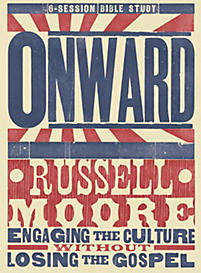A firm understanding of mission is imperative in any organization. The mission is the foundational purpose for everything an organization is about, whether it produces products, provides services, gathers people together or advances the kingdom of God.
Without a mission, the organization flutters in the wind, blown this way and that by the winds of public opinion, profitability and popularity.
The mission of an organization gives it a firm place to stand, something it can always come back to in order to answer the fundamental questions of exactly why it exists and how it's carrying out its purpose.
The Most Dangerous Threat
The most dangerous threat to the Christian Church isn't the gale-force winds of a shifting culture, political decisions or a lack of popularity.
The most dangerous threat to the Church is a fundamental misunderstanding of its own mission.
The church is to engage the world with the gospel of Jesus Christ. We're also called to become an agent of change for justice and righteousness. We're called to expose sin with the light of Christ (see Eph. 5:11).
The Mission: Found in the Great Commission
Jesus knew that in the years following His ascension, His people would need to adopt a mission to accomplish the work of God. That's why He was very explicit when He gave His commission to the church:
Jesus came and said to them, "All authority in heaven and on earth has been given to me. Go therefore and make disciples of all nations, baptizing them in the name of the Father and of the Son and of the Holy Spirit, teaching them to observe all that I have commanded you. And behold, I am with you always, to the end of the age."
Matthew 28:18-20
It's Not About Us
The church's mission isn't based on the ingenuity, strength or courage of the followers of Jesus. Instead, Jesus framed His command with the authority that had been given to Him.
Authority seems to be in short supply in the world today. Part of the reason is that for years it seems that those who've been given authority in our world haven't treated that authority with the care and respect it deserves.
Time and time again we've seen people, just like us, use the authority not for good but for personal gain and, in doing so, betray the trust of those who've willingly submitted to that authority.
The consequence is a general distrust for an office, a title or a position that wields some measure of authority.
But the authority of Jesus is different.
Based on What Authority?
Notice in Matthew 28:18-20 that Jesus has been given that authority. Unlike an elected official in our day, the authority of Jesus came not from a popular vote but from God Himself.
Before giving the church its marching orders, Jesus established the fact that He has the right to command.
Additionally, this statement reveals exactly what Jesus is doing with His authority. He's putting His full support behind this particular mission. Consequently, any church that completely aligns itself with this mission is joining Jesus in what He's bringing about with His authority.
Final Thoughts: A Self Check
Any church that strays from this mission also strays from Jesus' backing.
The mission of the church, both past as well as present and future, is to make disciples of Jesus in the entire world.
What exactly is the Church doing in the world? Do we share the mission of Jesus, or somewhere along the line have we become distracted with other priorities?
Excerpted from Russell Moore's Bible study, Onward_. © 2015 Lifeway Press. Used by permission._
As Christianity seems increasingly strange and even subversive to our culture, we have the opportunity to embrace the distinctiveness of the Christian faith and to be marginalized for the sake of the gospel. In this six-session small group Bible study, understand how the kingdom of God sets our priorities as believers and gives us perspective on cultural issues
